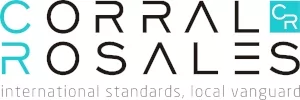Pharmaceutical patent licenses are generally granted by means of agreements freely executed between the patent holder and the person authorized to exploit the invention. However, this is not always the case, since in some exceptional cases, they are granted by order of the authority under the conditions set forth in the Law. Our partner, María Cecilia Romoleroux, and our professional technician, Gabriel Kuri, write about this for AIPPI Ecuador.
The Commission of the Andean Community of Nations -CAN- provides for the granting of compulsory licenses for reasons of public interest, emergency or national security, if there are practices that affect free competition, and when requested by the holder of a patent, provided that it necessarily requires the use of another patent. This requires the prior notice to the licensee, whenever possible, and a specification of the period for which it is granted, the object of the license, the amount, and the conditions of the financial consideration.
In 2009, the Ecuadorian Government declared access to medicines used in the treatment of certain diseases that affect the population and that are a priority for public health, as a matter of public interest. As a consequence, it declared the possibility of granting compulsory licenses. "In addition, it declared that, in principle, all medicines and agrochemicals would be subject to compulsory licensing as there are basic concepts that prevail over commercial interests," add our experts.
For this reason, while recognizing the right of each country to order compulsory licenses for patent-based medicines under the Agreement on Trade-Related Aspects of Intellectual Property Rights (TRIPS), Ecuador declared access to medicines used in the treatment of priority diseases to be in the public interest.
Last March 2021, the Andean Court of Justice issued a preliminary ruling (interpretación prejudicial) stating that " among the situations in which the competent national offices have the power to grant compulsory licenses, are those related to reasons of public interest, emergency, or national security ", they add. Therefore, the granting of a compulsory license does not affect the right of the patent holder to continue exploiting the patent.
Our experts, based on their experience, state that "the granting of a compulsory license requires that the competent authority of the Member Country evidences, explains and adequately and sufficiently substantiates the reasons of public interest, emergency or national security, as well as the need to adopt such measure, which must meet three reasonableness requirements". "It must also substantiate the reasons that justify that, under these circumstances, it is essential to grant a compulsory license."
"The preliminary ruling clearly establishes that it is not enough to simply state one or more conditions included in Article 65 of Decision 486, but that these must be explained, detailed and even individualized for each case," they conclude.
If you want to see the article, click here
Originally published by AIPPI
The content of this article is intended to provide a general guide to the subject matter. Specialist advice should be sought about your specific circumstances.


